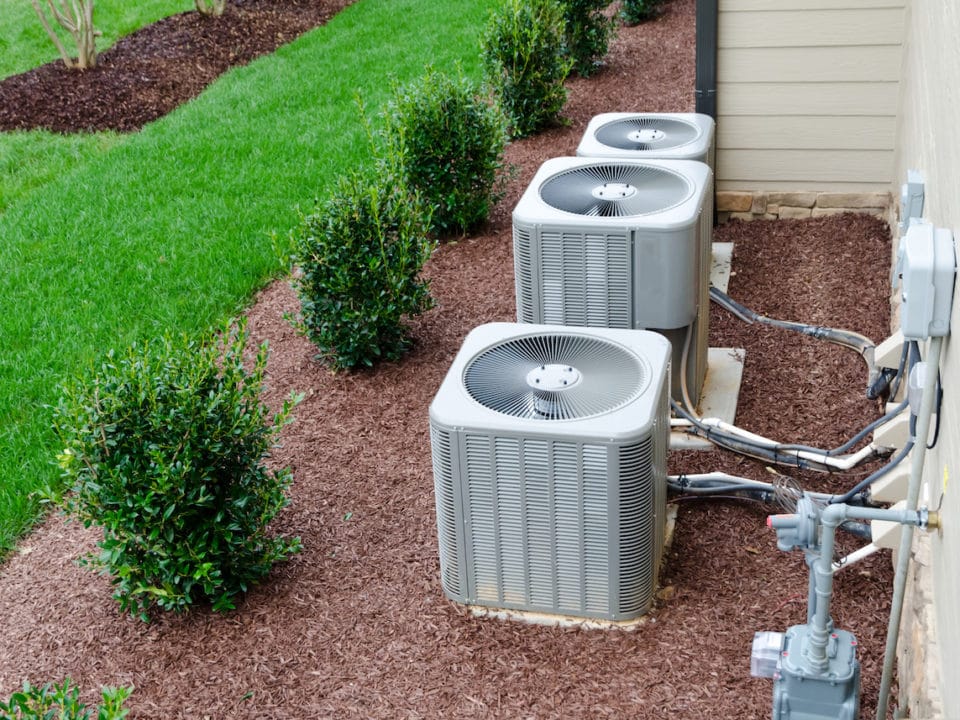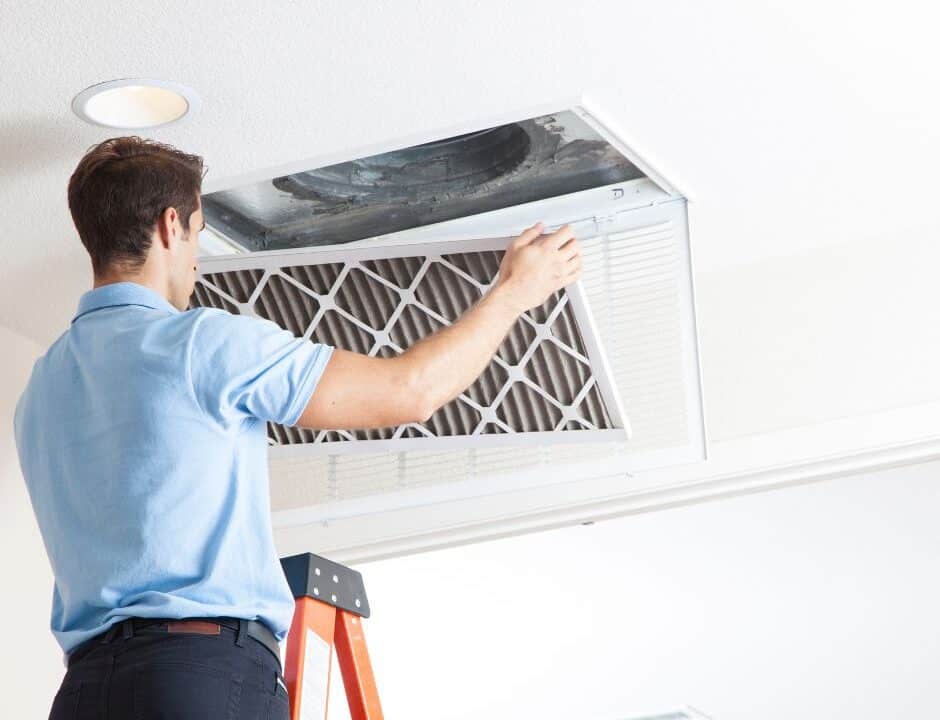Indoor Air Quality: Strategies for Cleaner and Fresher Air
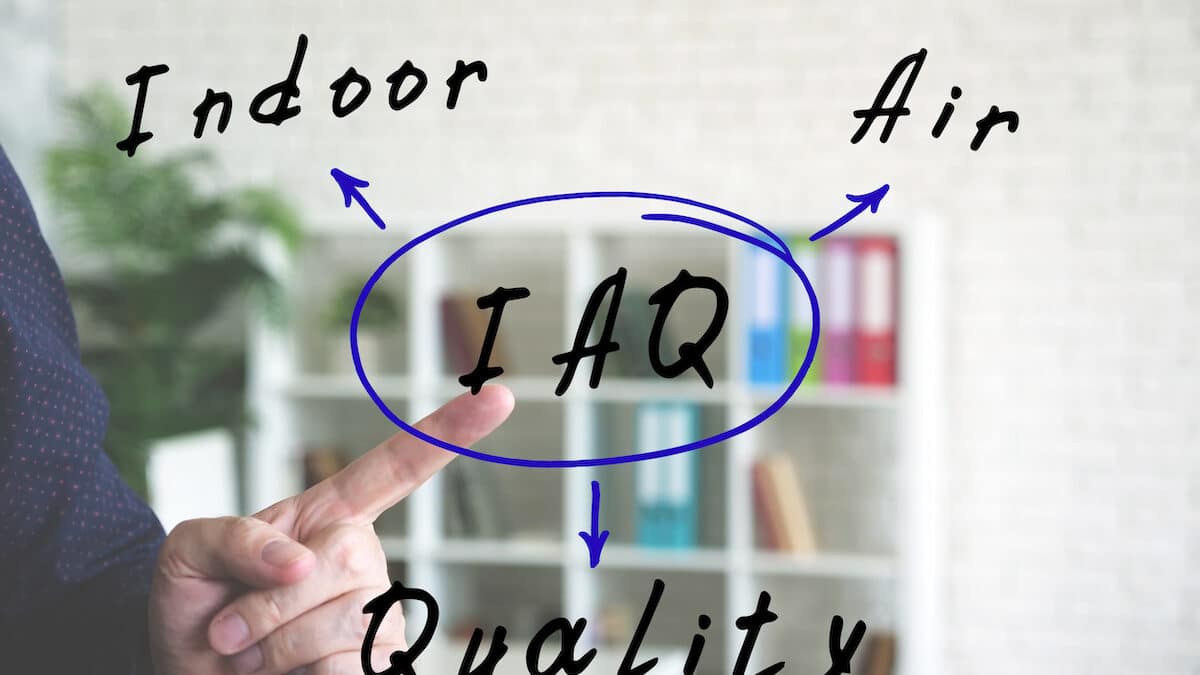
Indoor Air Quality (IAQ) is crucial for a healthy and comfortable living environment. Considering the majority of our time spent indoors, the quality of the air we breathe directly affects our well-being. This is why many homes have heating and air (HVAC) systems. They play a significant role in ensuring clean and fresh air circulation throughout our homes.
In this article, we will explore effective strategies for improving IAQ and highlight the importance of professional heating and air services and how they help0 achieve optimal air quality.
Understanding Indoor Air Quality
Indoor Air Quality refers to the condition of the air within enclosed spaces, like homes, offices, and schools. It encompasses various factors, including:
- The presence of pollutants
- Temperature
- Humidity
- Ventilation
Common indoor air pollutants include:
- Dust mites
- Pollen
- Pet dander
- Mold spores
- Volatile organic compounds (VOCs)
- Chemicals emitted by cleaning products
Prolonged exposure to these pollutants can lead to respiratory issues, allergies, and other health problems. This is why it’s important to limit the factors that cause poor indoor air quality and focus on implementing strategies that improve it.
Factors Affecting Indoor Air Quality
Indoor air quality is influenced by a variety of factors, both external and internal, that can impact the overall cleanliness and freshness of the air within a home or building. Understanding these factors is crucial for effectively addressing indoor air quality concerns.
External factors
External factors refer to pollutants and allergens that originate from outside the building and find their way indoors. Some common external factors that can affect indoor air quality include:
- Outdoor pollution
- Airborne pollutants from vehicle emissions, industrial activities, and nearby sources of pollution can infiltrate indoor spaces through open windows, doors, and ventilation systems. These pollutants can include particulate matter, volatile organic compounds (VOCs), and nitrogen dioxide (NO2), among others.
- Pollen and allergens
- Pollen from plants and trees, as well as other outdoor allergens like grass or mold spores, can enter indoor environments through open windows, doors, and clothing or shoes. These allergens can trigger allergic reactions and respiratory issues, especially for individuals with allergies or asthma.
- Dust and particulate matter
- Dust, dirt, and other particulate matter can be carried indoors through open windows and doors or tracked in on shoes. These particles can accumulate over time and contribute to poor indoor air quality if not effectively removed.
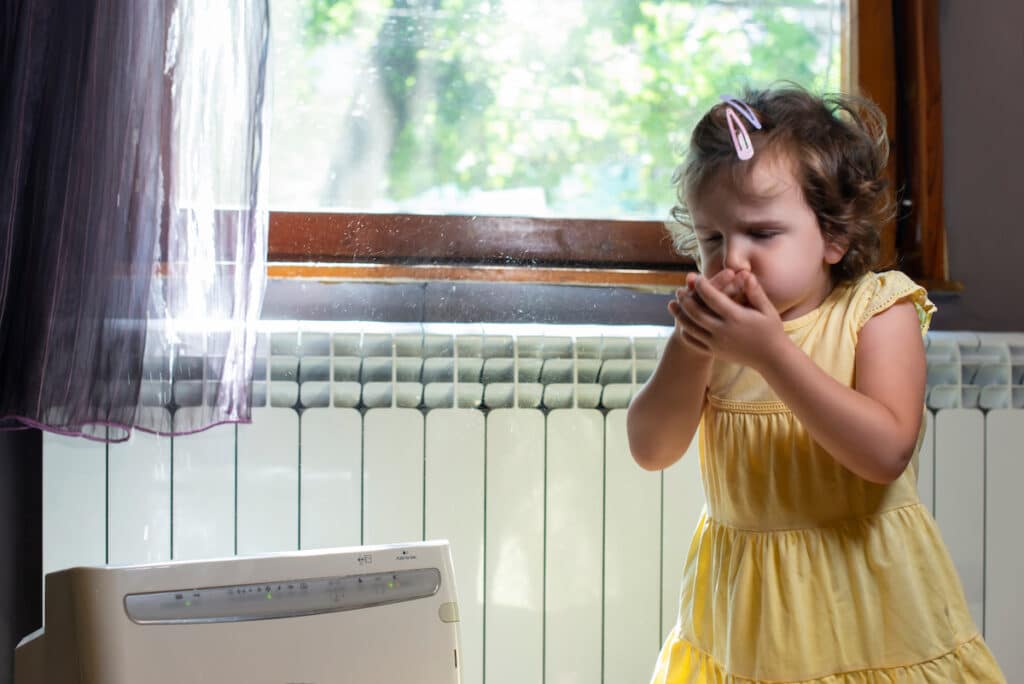
Internal factors
Internal factors encompass pollutants and conditions generated within the indoor environment. These factors include:
- Chemicals and VOCs
- Building materials, furniture, cleaning products, paints, and other household items can emit volatile organic compounds (VOCs) into the air. VOCs include chemicals such as formaldehyde, benzene, and toluene, which can have harmful effects on human health.
- Cleaning products
- Many conventional cleaning products contain chemicals that can release fumes and pollutants into the air. These chemicals, such as ammonia and bleach, can contribute to respiratory irritation and poor indoor air quality.
- Pet dander and allergens
- Pet dander, saliva, and urine are common sources of indoor allergens. Even if individuals are not directly allergic to pets, the dander and allergens can still impact indoor air quality and trigger allergic reactions.
- Inadequate ventilation
- Insufficient ventilation or a lack of fresh air circulation can lead to the buildup of indoor pollutants. Without proper airflow, pollutants and allergens can accumulate, leading to diminished air quality.
Addressing these factors requires a combination of preventive measures and mitigation strategies. You can mitigate the impact of both external and internal factors on indoor air quality by:
- Cleaning regularly
- Minimizing chemical usage
- Ventilating effectively
- Filtering the air properly
It’s important to note that HVAC systems play a significant role in controlling and improving indoor air quality. They do this by effectively filtering and circulating air, which removes particulates, pollutants, and allergens, contributing to cleaner and fresher air within the indoor environment.
Regular maintenance and professional HVAC services are essential for ensuring that heating and air systems function optimally, thus supporting healthier indoor air quality.
We will cover more on the strategies for improving indoor air quality, the role of an HVAC system, and the benefits of indoor air quality below.
Strategies for Improving Indoor Air Quality
Regular Maintenance of HVAC Systems
Proper maintenance of heating and air systems is essential for ensuring optimal indoor air quality.
Regular inspections and tune-ups by qualified professionals help identify any potential issues and ensure that the system operates efficiently. During these inspections, technicians will review areas of your HVAC systems that can impact air quality, like:
- The condition of air filters
- Cleanliness of the coils
- Potential leaks or ductwork problems
By addressing these issues promptly, homeowners can prevent the circulation of pollutants and maintain cleaner air within their homes.
Effective Ventilation Practices
Adequate ventilation plays a crucial role in improving indoor air quality. Proper airflow and ventilation rates help dilute and remove indoor pollutants, ensuring fresher air throughout the space.
One simple strategy is to open windows and doors when the weather is nice, allowing for natural ventilation and the exchange of indoor and outdoor air.
In areas like kitchens and bathrooms, the use of exhaust fans helps remove moisture, odors, and pollutants generated by cooking or personal hygiene activities.
Additionally, energy recovery ventilators (ERVs) or heat recovery ventilators (HRVs) can be installed to bring in fresh air while efficiently exchanging heat or cooling energy, thus promoting ventilation without compromising energy efficiency.
Control of Indoor Pollutants
Reducing the presence of indoor pollutants is crucial for improving indoor air quality. Implementing effective strategies to minimize the use of chemicals and volatile organic compounds (VOCs) can significantly contribute to cleaner air.
- Choose eco-friendly cleaning products that are free from harsh chemicals and allergens.
- When selecting furniture, paints, or building materials, opt for low VOC options.
- Proper pet management is also essential for reducing pet dander and allergens in the air. Regular grooming, washing pet bedding, and vacuuming with a HEPA filter can help minimize the impact of pet-related allergens.
- Adopt proper cleaning practices such as regular dusting, vacuuming, and mopping to help eliminate dust, pollen, and other particulates that can accumulate and worsen indoor air quality.
Humidity Control
Maintaining appropriate humidity levels within the home is crucial for improving indoor air quality. Excessive humidity can promote the growth of mold, mildew, and dust mites, while low humidity can cause dryness and discomfort.
To control humidity levels, use dehumidifiers in areas that are prone to dampness, such as basements or bathrooms, to remove excess moisture from the air. Similarly, in dry environments, using humidifiers can add moisture to the air and alleviate dry skin, respiratory irritation, and other discomforts associated with low humidity. Maintaining optimal humidity levels helps create a more comfortable living environment and prevents the proliferation of indoor allergens.
By implementing these strategies, homeowners can significantly improve their IAQ, creating a healthier and more comfortable living space for themselves and their families.
However, it’s important to note that for specialized services such as HVAC maintenance, air duct cleaning, or advanced IAQ solutions, it’s recommended to consult with professional heating and air service providers, such as those at Trust Heating and Air, who have the expertise and experience to address specific IAQ needs effectively.
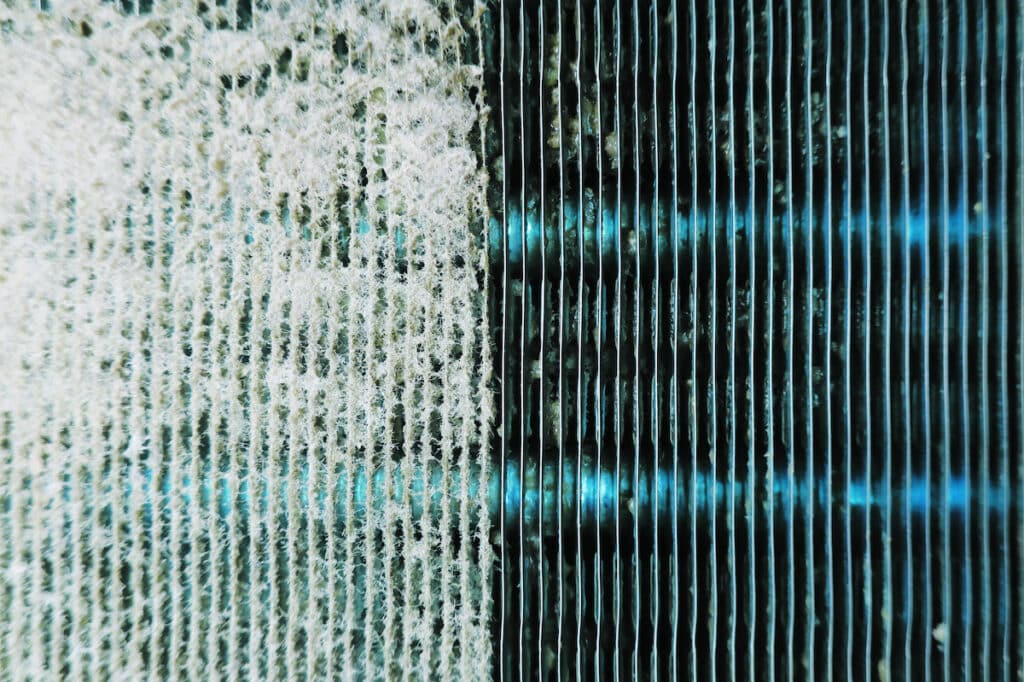
The Role of HVAC Service Providers
Professional heating and air service providers play a vital role in improving IAQ. They offer expertise in HVAC inspections and maintenance, ensuring that systems operate optimally and air filters are clean and functional.
These professionals can also guide homeowners in upgrading to energy-efficient systems, reducing utility bills, and contributing to better IAQ.
HVAC technicians can offer expert advice on IAQ improvement, suggesting additional measures such as air purifiers or UV germicidal lamps.
Furthermore, air duct cleaning and sealing services help prevent the circulation of dust, allergens, and contaminants within the ductwork.
3 Benefits of Improved Indoor Air Quality
1. Health benefits for occupants
Enhancing IAQ has a positive impact on the health and well-being of individuals. Cleaner air reduces the risk of:
- Respiratory conditions
- Allergies
- Asthma
It also contributes to better sleep quality and overall comfort.
2. Enhanced comfort and productivity
Breathing clean air improves comfort levels and enhances productivity. Fresh air promotes concentration, alertness, and cognitive function, making indoor environments more conducive to work and study.
3. Energy savings and reduced utility bills
Energy-efficient HVAC systems and proper IAQ measures can lead to energy savings and reduced utility bills. You’ll benefit your wallet and the environment with:
- Optimized heating and cooling equipment
- Efficient ventilation
Improving Indoor Air Quality in Your Space is Essential
Improving indoor air quality is crucial for creating a healthier and more comfortable living environment. By implementing the strategies outlined above, homeowners can ensure cleaner and fresher air within their homes.
However, professional heating and air services play a vital role in achieving optimal IAQ. From regular inspections and maintenance to expert advice and specialized services, HVAC professionals are essential partners in the journey towards cleaner and fresher indoor air.
Contact Trust Heating and Air today to schedule an IAQ assessment or service. Prioritize your health and the well-being of your family by ensuring your indoor air quality is of the highest standard. Let us help you breathe cleaner and fresher air today.

